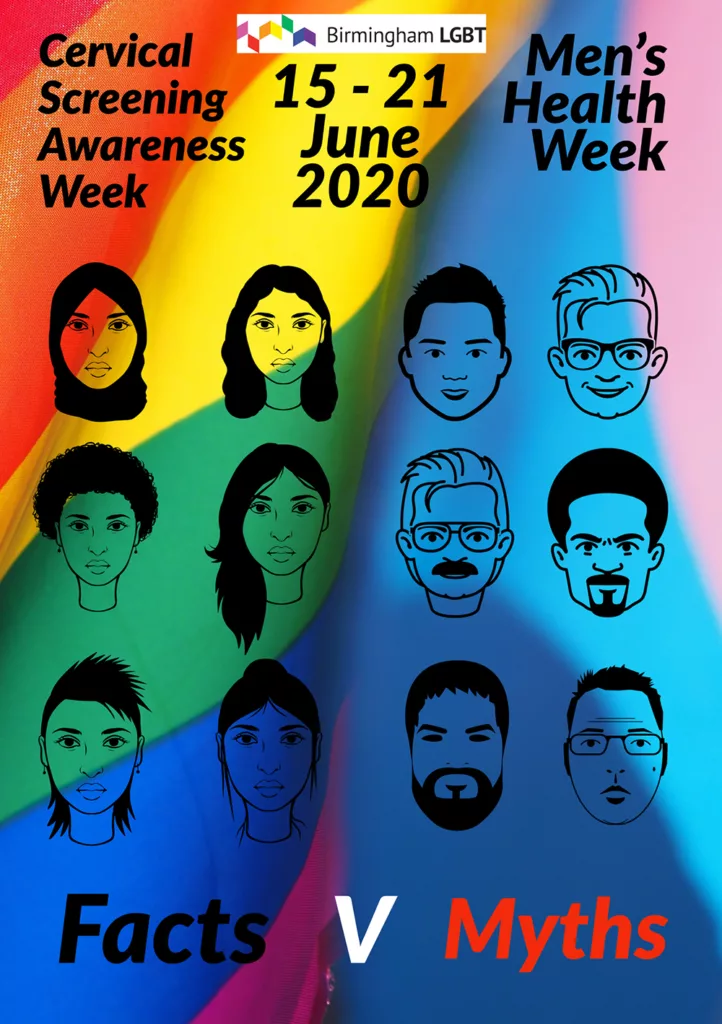Census 2021 Statement from the LGBT Sector
Birmingham LGBT has signed up to this statement. For a full list of signatories, visit https://www.consortium.lgbt/2021/02/18/census-consenus-statement/ The England and Wales Census 2021- taking place on 21st March- will ask voluntary questions about your sexual orientation and trans status for the first time. This is a huge step forwards and has come about in part due to […]
Men’s Health Week 2020 – Facts v Myths

Cervical Screening Awareness Week 2020 – Facts v Myths

